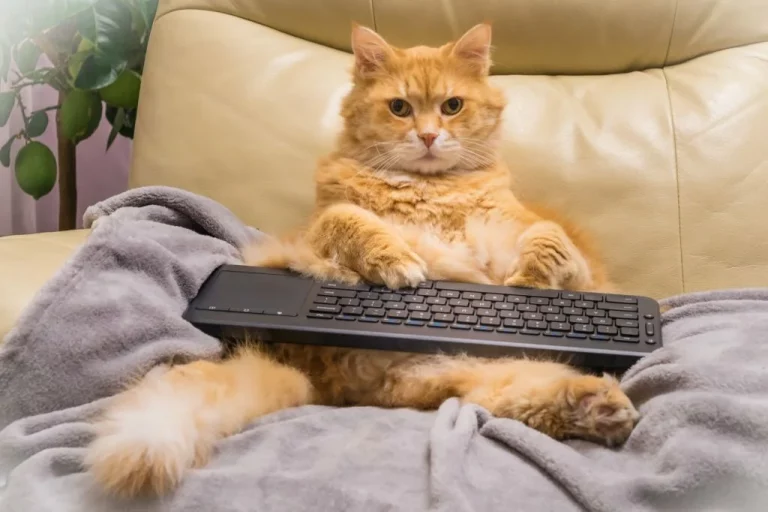Do Cats Get Tired of Meowing? Secrets Reveal
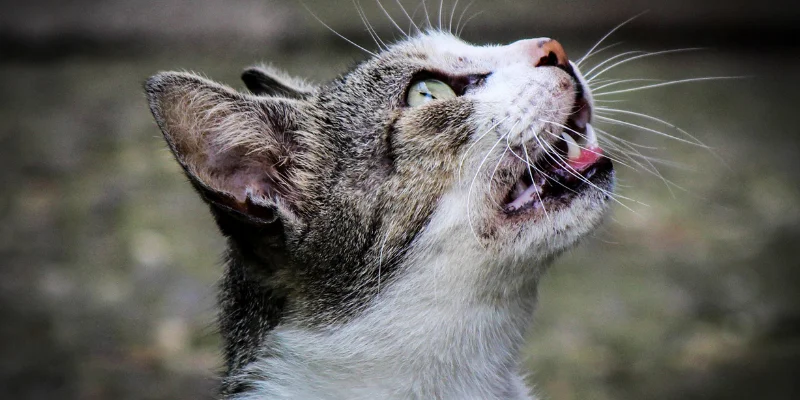
Table of Contents
Explore the fascinating world of feline communication in our article: “Do Cats Get Tired of Meowing.” Uncover the mysteries behind cat vocalizations and gain insights into the emotional nuances of your whiskered companion’s meows.
Curiosity often surrounds our feline friends, especially when it comes to their vocalizations. Many cat owners find themselves pondering a common question: do cats get tired of meowing? In this comprehensive exploration, we delve into the intricacies of feline communication, shedding light on whether our whiskered companions can indeed grow weary of their own meows.
Do Cats Get Tired of Meowing?
Yes, cats can get tired of meowing, just like humans get tired of talking. Cats are known for their vocalizations, particularly their signature “meow” sound. While it might seem like they never get tired of meowing, the truth is that they do. Just like humans, cats can experience vocal fatigue, especially if they are meowing excessively. This is usually due to underlying reasons such as boredom, loneliness, or medical issues. If you notice your cat is meowing more than usual, it’s important to investigate the cause and take appropriate action.
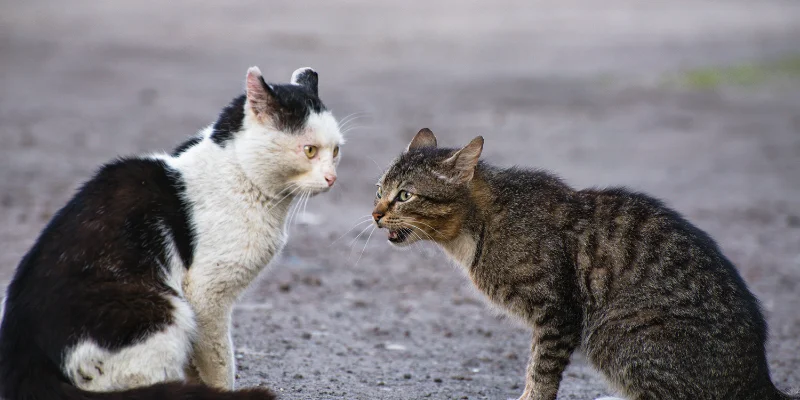
The Nature of Feline Communication
Vocalizations as Expressive Tools
Cats communicate through a variety of vocalizations, each carrying nuanced meanings. Meowing is a primary form of expression, serving as a tool for conveying emotions, needs, and desires. From a hungry meow to a content purr, every utterance serves a purpose in the feline communication repertoire.
The Emotional Spectrum of Meows
It’s essential to recognize that cats, like humans, experience a broad range of emotional Behaviour. Their meows are not a monotonous drone but a dynamic reflection of their feelings. While a cat may meow persistently to signal hunger, it could also employ a different tone to express loneliness or seek attention.
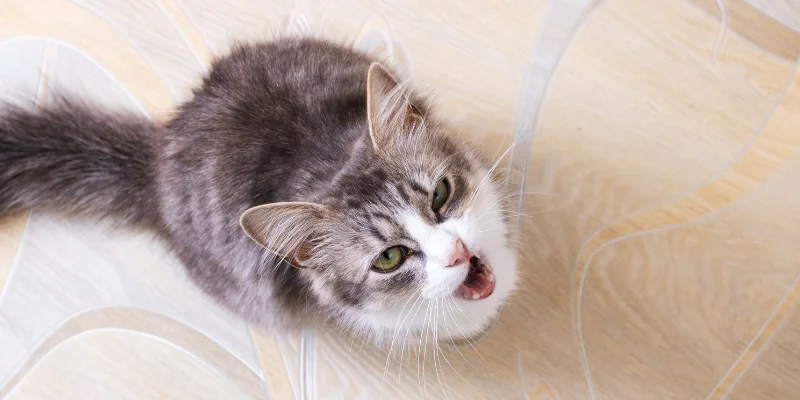
Understanding Feline Behavior Patterns
Meowing as a Social Cue
Cats are inherently social animals, and meowing is often employed as a means to connect with their human companions. They may meow to greet, seek attention, or simply engage in a conversation with their favorite humans. Understanding these social cues can help decipher the motives behind persistent meowing.
Variations in Meowing Patterns
Not all meows are created equal. Cats exhibit diverse meowing patterns based on their personalities, breeds, and past experiences. Some cats may be more vocal due to their inherent nature, while others might reserve their meows for specific situations. Recognizing these variations adds depth to our understanding of feline communication.
Addressing the Myth: Do Cats Get Tired of Meowing?
Meowing Fatigue: A Myth Dispelled
Contrary to popular belief, there is no evidence to suggest that cats grow tired of meowing. Meowing is an integral part of their communication toolkit, and as long as they have a need or desire to express themselves, they will continue to vocalize. It’s crucial for cat owners to differentiate between natural meowing and potential health issues or discomfort.
Recognizing Excessive Meowing
While cats don’t tire of meowing, excessive and sudden changes in vocalization patterns could be indicative of an underlying problem. If a usually silent cat becomes unusually vocal or vice versa, consulting with a veterinarian is advisable. It could be a sign of pain, illness, or stress, warranting prompt attention.
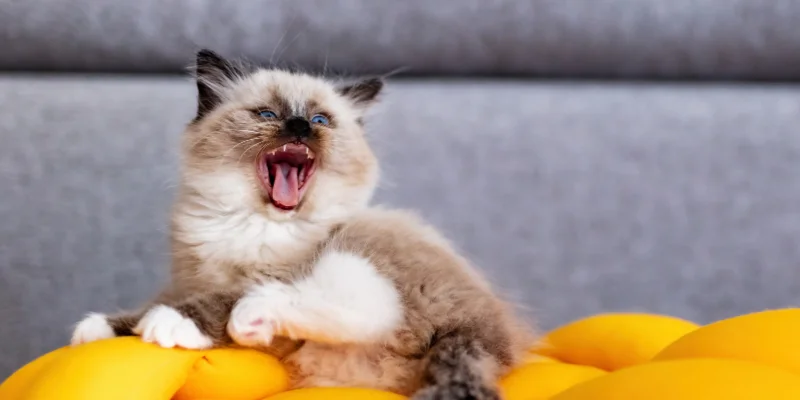
Why Does My Cat Walk Around Crying?
Being vocal animals, cats utilize vocalizations to express a range of needs and feelings. Felines experiencing stress or anxiety typically cry while going about their regular activities. A trade in their surroundings, the addition of a puppy or member of the family, or a lack of care are only a few possible causes of this. If your cat is meowing more than usual, attempt to determine what is stressing them out and take the steps to calm them down.
Pain is another cause why a cat might cry as it goes about doing its work. This might be an impact of a clinical condition, which includes a contamination or injury, or it could be because of of something extra trivial, like a hairball or a scratch. If you suspect your cat is probably in pain, take them to the vet in order that any serious illnesses can be ruled out.
This an amazing post to read about Can Bearded Dragons Eat Sunflowers?
wrapping it up
the mystery of whether cats get tired of meowing is unfounded. Meowing is an inherent aspect of feline communication, reflecting their emotions and needs. By understanding the diverse nature of meows and recognizing individual variations, cat owners can foster stronger bonds with their feline companions. While meowing fatigue is a myth, vigilant observation of changes in vocalization patterns ensures the well-being of our beloved cats.
FAQs
Will my cat ever stop meowing so much?
While some cats may additionally mellow out with age, others may hold to meow frequently. It’s vital to perceive the underlying cause of your cat’s meowing, whether it’s attention-seeking, medical troubles, or environmental factors. Addressing these issues can help reduce excessive meowing.
Will my cat stop meowing if I ignore him?
Ignoring your cat’s meows may initially cause them to meow more, as they may try to get your attention more insistently. However, consistently ignoring your cat’s meows could lead to frustration, anxiety, or even behavioral problems. It’s better to identify the reason for their meowing and address it directly.
How do I get my cat to stop yowling?
To reduce excessive yowling, first identify the underlying cause. If it’s attention-seeking, try redirecting their attention with interactive play or grooming. If it’s medical, consult a veterinarian. If it’s environmental, consider providing more enrichment or addressing any potential stressors.
Why does my cat never shut up?
Excessive meowing could have various reasons, including attention-seeking, medical issues, environmental factors, or stress. Identifying the underlying cause is crucial to address the issue effectively.



